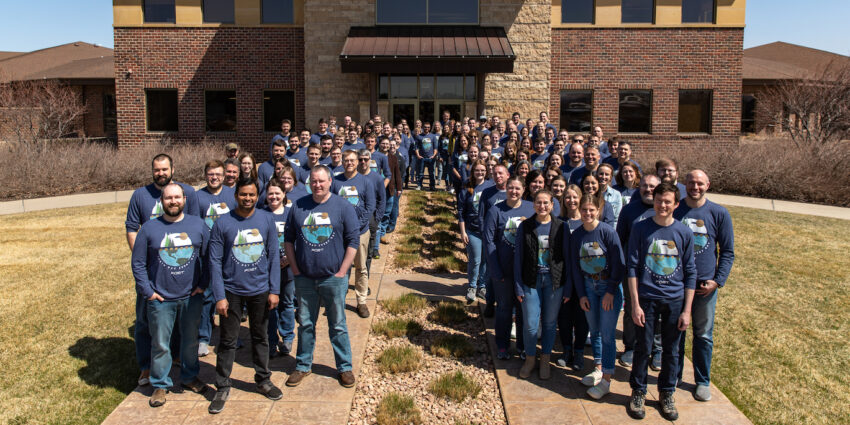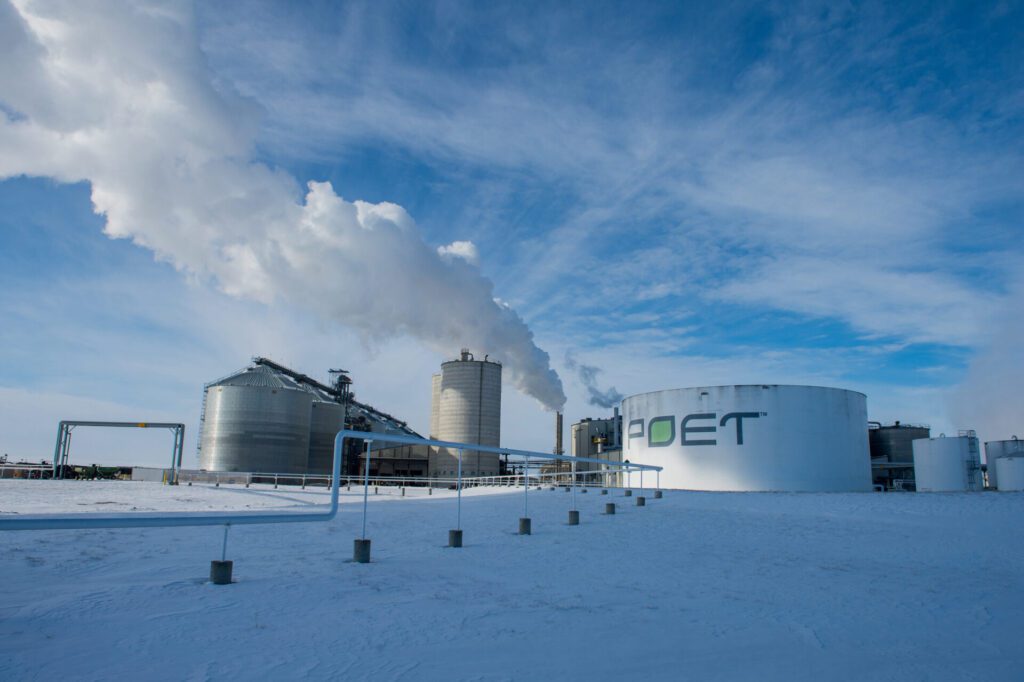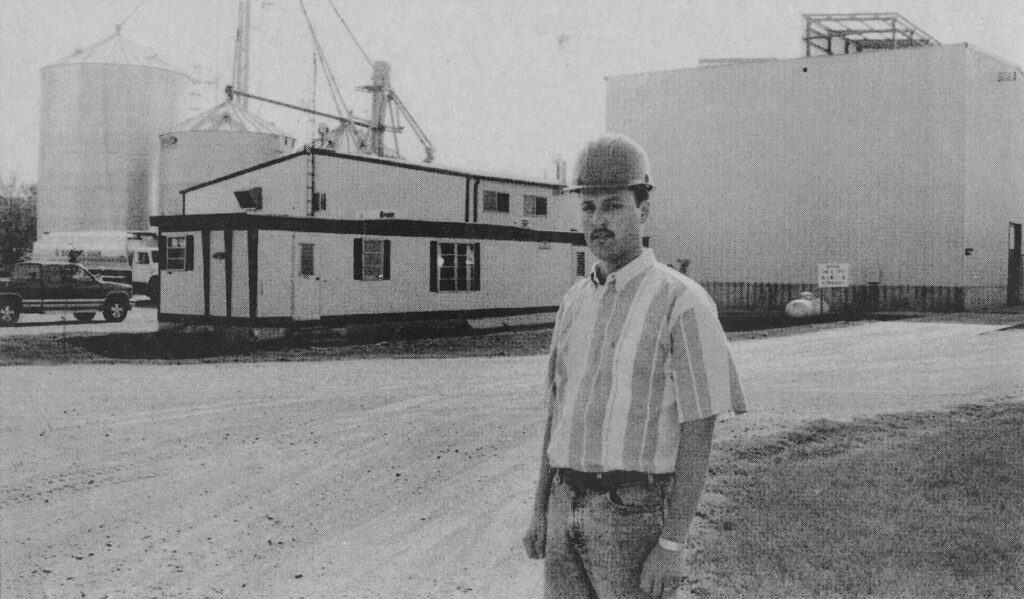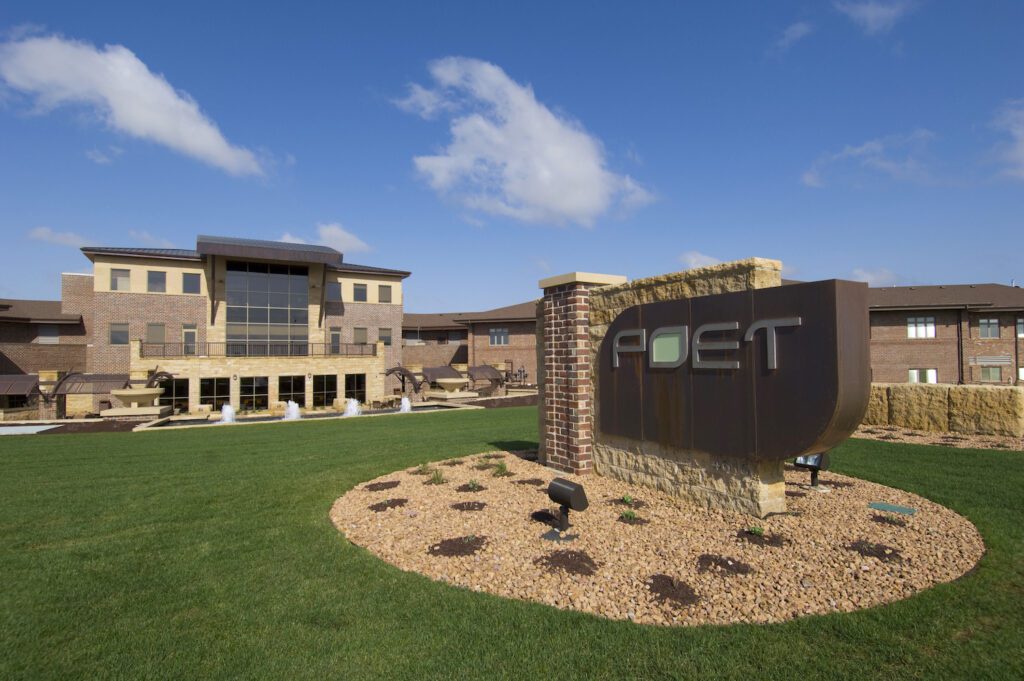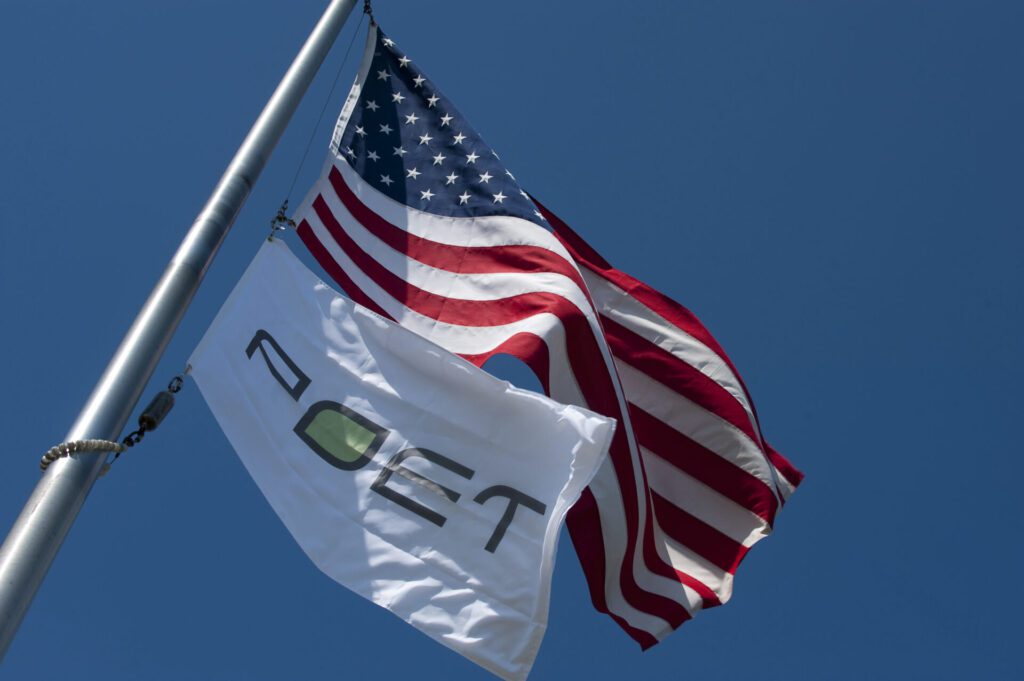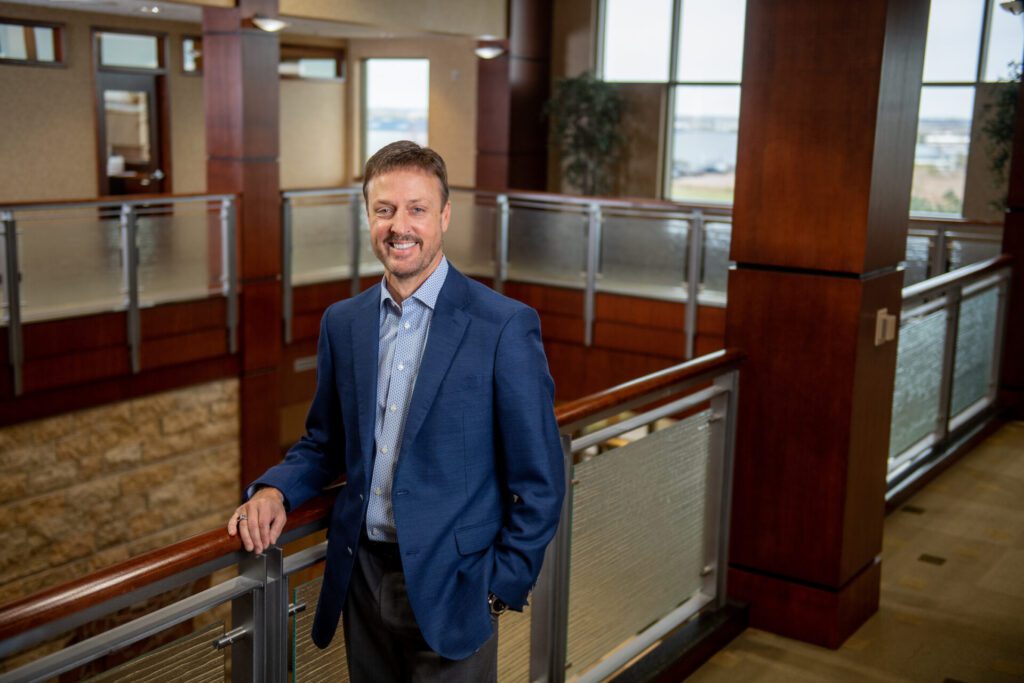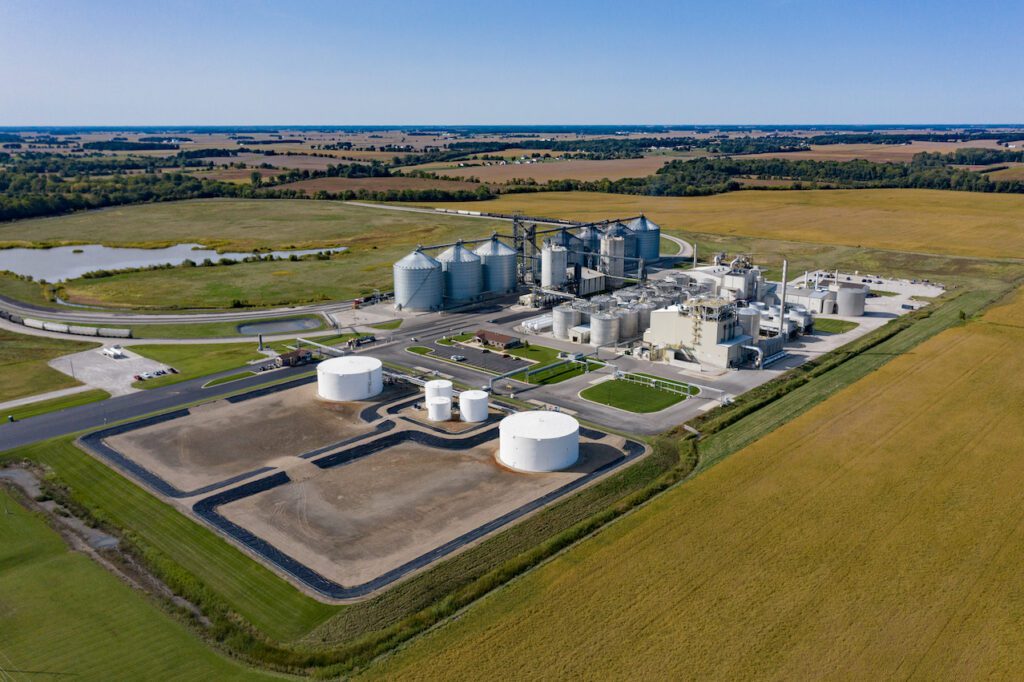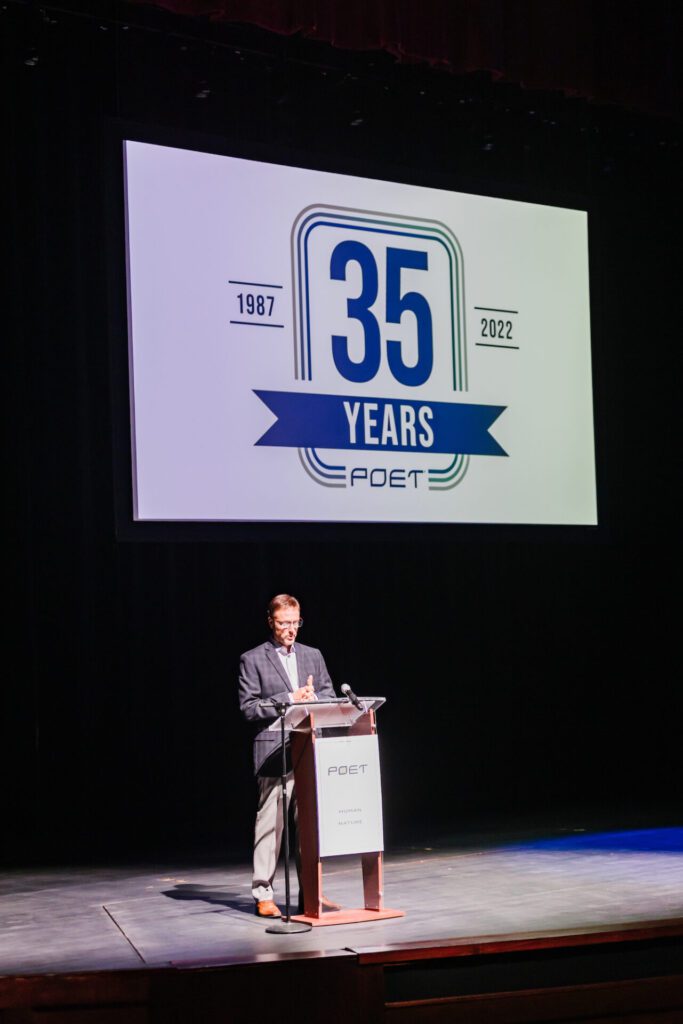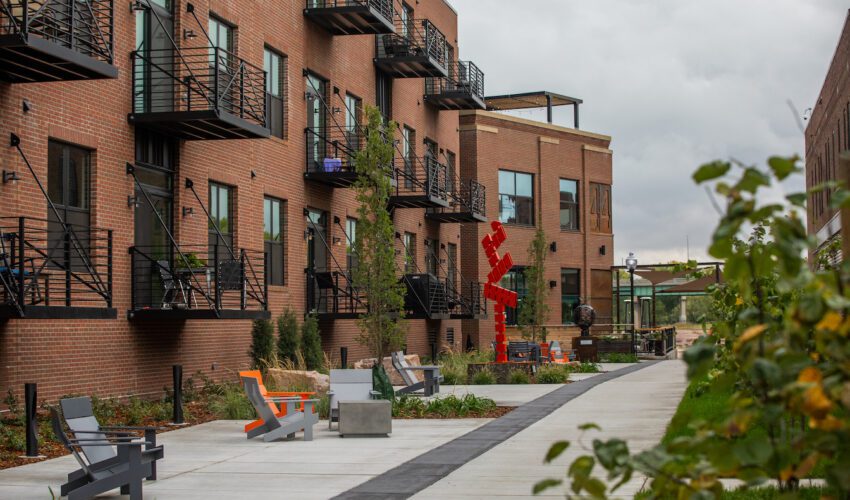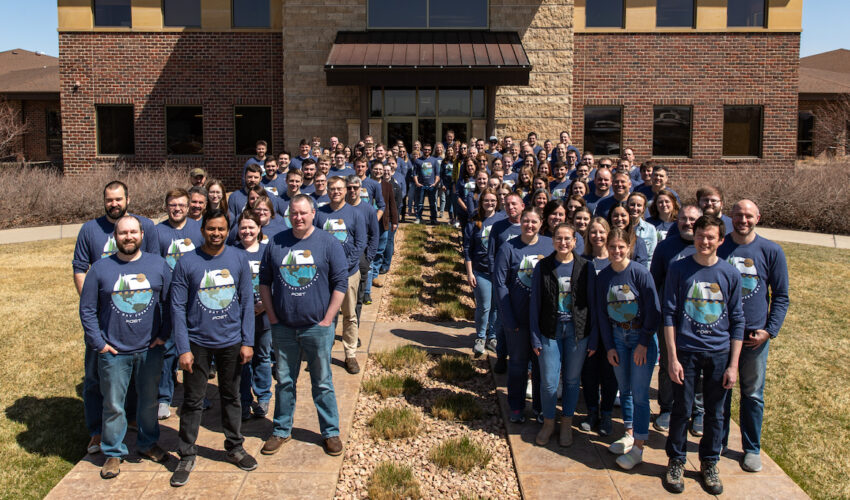At 35, POET still has big vision for the future
March 7, 2023
This paid piece is sponsored by POET.
Consider the work of a poet.
A poet is one “who takes everyday words and gives them new meaning,” said Jeff Broin, founder and CEO of Sioux Falls-based POET.
“We take the humble corn plant and create products with the potential to change the world.”
The correlation is what ultimately convinced him that POET was the right name for the startup that began as Broin Companies 35 years ago.
Memorable. Short. Evocative.
“Everyone asked what it meant,” Broin said. “When they did, it gave us the chance to go deeper and explain.”
There’s a lot to explain. How a risky venture on a family farm inspired the start of what would become the world’s largest producer of biofuels and the largest company by revenue in South Dakota. How its technology evolved to produce not only high-protein animal feed but also more than a dozen other unique bioproducts. How it grew into the nation’s fastest-growing renewable CO2 company, the 37th largest container shipper in the U.S., a new producer of solar power and eventually perhaps even a producer of biogas.
“There’s a lot going on here,” Broin agreed. “But I believe it’s all part of God’s renewable plan to take us back to sun, soil and seed.”
Agricultural roots
Broin’s childhood growing up on a Minnesota farm “was a lesson in agriculture and what it could do to make a difference in the world,” he said.
His family saw a sustainable future sooner than many, using biomass to dry grain in the early 1980s and even building a farm-scale bioethanol plant on the family farm.
“My father was always looking at new ways of doing things,” Broin said. “He built most of the buildings on our farm himself and even created a solar heating system for our family swimming pool. Then when I was a teenager, he built the bioethanol plant to add value to his own crops.”
These were the early days of bioethanol, and many startup plants didn’t make it, including a plant in Scotland, South Dakorta, that came up for auction in 1986. And when the Broin family went to the auction intending to buy parts for the farm-scale plant, “we ended up buying the whole plant,” Broin said. “The other bidder was going to scrap the equipment and turn it into corn storage. So we bought it at a reasonable cost.”
The family asked if Jeff, then 22 and working as an ag banker, wanted to partner in the operation and move to South Dakota to manage the plant.
“I was young and single with nothing to lose,” he said. “I said, ‘Sure.’”
From there, he learned the 24/7 operation “from top to bottom,” he said. “I fixed the plant in the middle of the night. I bought the grain, marketed the products, managed the accounting – I had to understand every single job, which has been very valuable to me as the company has grown.”
And the company grew quickly. Broin Companies began building bioethanol plants for other entities throughout the Midwest. It wasn’t long before Broin purchased a small plane, which proved necessary to support team members’ frequent trips to design, build and manage plants in other states.
“I figured out quickly I couldn’t drive and get home to see my family at night,” he said. “There was no way we were going to reach the entire Midwest by car or commercial airlines with small towns all across the region, so we hired a local farmer with his pilot’s license who flew us off a grass runway for many years.”
Still, despite growing enthusiasm for the bioethanol industry, expansion didn’t come easily or automatically.
“The first dozen or so plants, farmers were reluctant to invest,” Broin said. “They weren’t used to being part of a value-added ag venture. I remember in northeast Missouri we did over 80 meetings to raise money for a new plant near Macon.”
But the success of the Scotland facility allowed financing for the first several new plants. The proof of concept that had been achieved in southeast South Dakota allowed Broin, an ag business major, to understand the economics of the industry.
“We got pretty good at running pro forma financials and deciding when plants could be successful, but they needed the right location and state support,” he said.
As the business grew, it became clear a headquarters was needed for the design and construction division.
“I looked at cities around the Midwest, and after researching, we decided Sioux Falls would be the right location to draw world-class talent,” Broin said. “We weren’t sure where this was going, but we needed some of the top engineers and scientists in the country, and this city seemed like a place we could attract people who were looking for a great place to live and raise a family.”
POET’s Sioux Falls headquarters now employs nearly 400 of its 2,400 team members nationwide.
“We have attracted hundreds of people to this city from all over the country, and I hear regularly how much they love it,” Broin said. “It’s important we keep Sioux Falls that place where people want to move because that’s why businesses here are so successful.”
POET today and tomorrow
While POET began as a small business and, at the time, Broin’s primary focus was simply to feed his growing family, “it quickly evolved into a way to really change agriculture and change the world.”
The goals of the company have evolved over time, and now “we see it as a way to improve crop and land values for the American farmer, clean the air we breathe, reduce our reliance on fossil fuels, and today it’s evolved into a way to significantly lower carbon for our planet.”
POET is continually leveraging research and development with engineering in its quest to use every portion of the corn plant, Broin said.
In the beginning, the company had two products: bioethanol and high-protein feed.
“Today, we produce bioethanol, corn oil that is processed into biodiesel and renewable diesel, high-protein feed, purified alcohol for consumer products and industrial carbon dioxide used for things like flash-freezing food or carbonating pop and beer,” Broin said.
“And we’re not done. Soon, we could generate even more value from CO2, and our team is working every day to grow our suite of bioproducts and improve our production processes. In addition, the biomass left over from the corn plant can be used to produce steam and electricity or to make biogas to heat homes.”
That means more value for farmers’ crops and their land, he added.
“When I got into this business, corn was a dollar a bushel, and farmers were being paid to set aside 20 percent of their land. Today, 40 percent of corn goes to make biofuels, and the price is between $6 and $8 a bushel,” Broin said. “Bioprocessing has brought significant value to rural America.”
Despite being a 35-year-old business, talk with Broin for even short time and it’s clear the company still possesses the mentality of a startup – with the hustle to go with it.
“It’s hard to stop when you see the impact POET is having on the world,” said Broin, who briefly stepped into a chairmanship role several years ago but came back as CEO because “it’s hard not to be excited every day about something at this company. There’s more left to do, and the evolution even in just the past few years has been pretty remarkable.”
For instance, in the past two years, POET has acquired another bioethanol company, growing its capacity by 40 percent virtually overnight, and recently purchased a transload facility in Savannah, Georgia, to better serve its customers in over 25 countries all over the world. The company also built a solar farm at its Sioux Falls headquarters, designed to model its ability to build similar infrastructure for others, and hosted its fourth presidential visit in Menlo, Iowa.
POET now processes 7 percent of the U.S. corn crop – 1 million semi-loads per year – and is opening its 34th bioethanol plant this summer. In a few months, the POET Bioproducts Center will bring researchers from South Dakota State University and South Dakota Mines together with industry partners in Brookings to transition bench-scale bioprocessing and bioproducts research to the marketplace.
“With over 100 published patents, POET has led this industry not only in biotechnology, but we’ve also played a significant role in driving policy for biofuels on state and federal fronts,” Broin said.
“I’m really proud of the culture we’ve created and the incredible team of professionals we’ve been able to put together at this company. We all park our egos at the door here, and we’ve remained committed to keeping our culture alive as we’ve grown from 13 team members to over 2,000. If we can maintain that culture, I believe in the next 35 years we will continue to lead the worldwide conversion from hydrocarbons to ag-based biofuels and bioproducts. I believe others are beginning to see agriculture’s ability to feed and fuel the world.”
And it is truly a worldwide effort. The Broin family’s Seeds of Change nonprofit is impacting millions of lives globally through education, human health initiatives and agricultural advancement.
“We’ve worked with about 600,000 farmers in Africa and have been able to increase their yield by 400 to 900 percent on their crops, and now we’re working on livestock,” Broin said.
“We’ve seen big improvements on everything from corn to beans, peas, mangos, avocado, coffee, tea and had an impact on over 4 million lives. I think it’s quite possibly one of the most successful modern ag initiatives.”
At 35, POET is about nothing less than changing the course of history. Listen to Broin talk about the untapped potential of the corn plant, and it’s clear how broad the vision extends.
“The most efficient solar panel on Earth is the leaf,” he said. “The only biodegradable, renewable battery I know of is the seed. You can store energy indefinitely in the form of seeds and biomass if you store them properly.”
The time is right, he continued, for agriculture “to take its rightful place in the economic structure of the world.”
For himself, at 57, leading the way continues to be a calling. Any exit strategy is one he said he’ll leave up to a higher power. “It’s above my pay grade,” he said.
“The agricultural potential of the world is virtually untapped, and there is almost unlimited potential to what the sun, the soil and the seed can do if we use ag land around the world more effectively,” he said.
“And that’s a very good thing for states like South Dakota and cities like Sioux Falls because we are right in the heart of where these crops are produced. Successful biofuels lead to successful agriculture, and successful agriculture can make a major impact on climate change, poverty, hunger and disease.
“I often say we need to leave a better world for our children and grandchildren, and I do believe the work we’ve done at POET has already done a lot of good. But after 35 years, I still feel as though we’re just getting started.”
For a compelling look at the history of POET, click the short film below:

